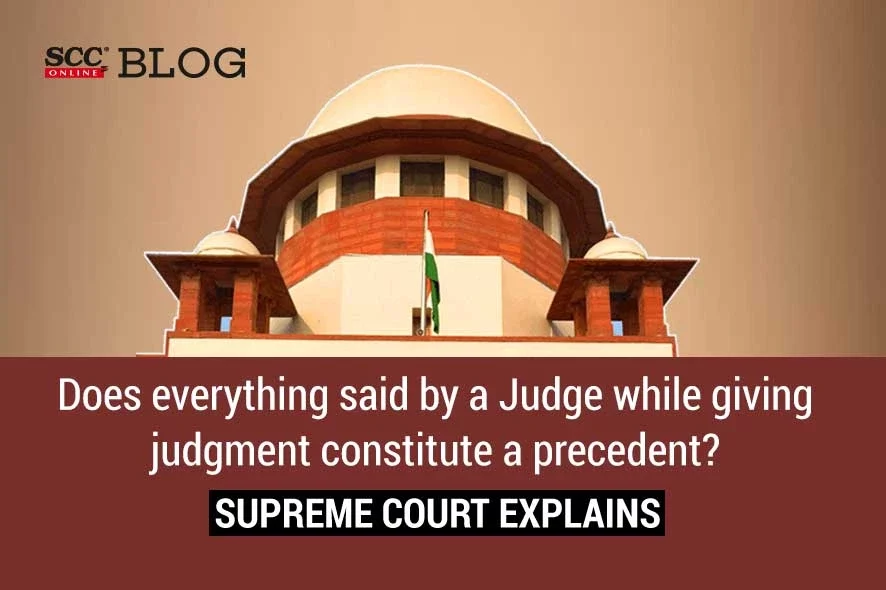Supreme Court: In a special leave petition against the judgment and order passed by the Punjab & Haryana High Court, the division bench of Sanjiv Khanna and M.M. Sundresh, JJ. while dismissing the petition, reiterated that it is not everything said by a Judge when giving judgment that constitutes a precedent. The only thing in a Judge’s decision binding as a legal precedent is the principle upon which the case is decided and, for this reason, it is important to analyse a decision and isolate from it the obiter dicta.
The Bench remarked judgment in Vidya Drolia v. Durga Trading Corpn., (2021) 2 SCC 1 did not examine and decide the issue of effect of unstamped or under-stamped underlying contract on the arbitration agreement. As this issue and question has not been decided in Vidya Drolia (supra), thus, the decision is not a precedent on this question.
Its reference to the decision in Garware Wall Ropes Ltd. v. Coastal Marine Constructions & Engg. Ltd., (2019) 9 SCC 209 was made to interpret the word ‘existence’, and whether an ‘invalid’ arbitration agreement, can be said to exist? This examination was to decide “who decides existence of an arbitration agreement” in the context of Sections 8 and 11 of the Arbitration and Conciliation Act, 1996.
While examining the distinction between obiter dicta and ratio decidendi, the Court took note of State of Gujarat v. Utility Users’ Welfare Assn., (2018) 6 SCC 21, wherein “the inversion test” to identify what is ratio decidendi in a judgment was applied. To test whether a particular proposition of law is to be treated as the ratio decidendi of the case, the proposition is to be inversed, i.e. to remove from the text of the judgment as if it did not exist. If the conclusion of the case would still have been the same even without examining the proposition, then it cannot be regarded as the ratio decidendi of the case.
Further, the Court also took note of Jayant Verma v. Union of India, (2018) 4 SCC 743, wherein it was stated that it is not the findings of material facts, direct and inferential, but the statements of the principles of law applicable to the legal problems disclosed by the facts, which is the vital element in the decision and operates as a precedent. Even the conclusion does not operate as a precedent, albeit operates as res judicata.
[Career Institute Educational Society v Om shree Thakurji Educational Society, 2023 SCC OnLine SC 586, order dated 24-04-2023]
Advocates who appeared in this case :
For Petitioner(s): Senior Advocate Rajive Bhalla, Advocate Amit Aggarwal, Advocate Sumeir Ahuja, Advocate Deepak Samota, Advocate Yajur Bhalla, Advocate Jaisurya Jain, Advocate. Ashish Vajpayee, Advocate Akansha Gulati, Advocate Ragini Sharma, Advocate-On- Record Shubham Bhalla;
For Respondent(s): Advocate Pinki Aggarwal.







